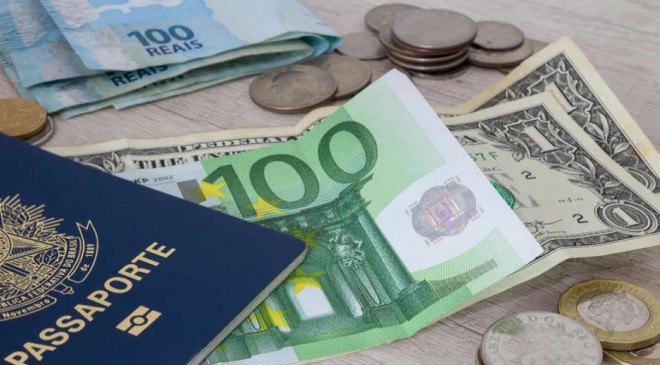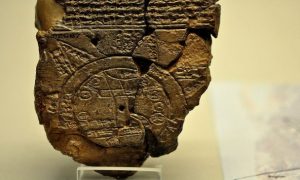The COVID pandemic has brought stark travel inequalities to light. When the world came to an abrupt halt, most travel plans were flushed down the drain, and much hope was lost while we were all confined within our borders. But amid the global chaos and confusion of differentiating rules for travel, high-risk travelers ventured into hard-hit travel destinations—putting themselves as well as the destination’s population at risk, and again, their home population upon returning. But not all citizens, and not all countries, were given the same rules about who could travel and who could visit. This prominent discrepancy has shone a spotlight on yet another travel disparity: the freedom of movement is not and has never been equal. And that is due to the “wealth” of any given country’s passport.
What Makes a Passport “Rich” or “Poor”?
An official passport issued by a citizen’s government serves to “[certify] the holder’s identity and citizenship and [entitle] them to travel under its protection to and from foreign countries.” But despite the universally accepted definition, not all passports operate under the same privileges. A “poor” passport is a globally weak identification document, where travel is limited to few foreign territories on a visa-free basis. But a “rich” passport is an internationally powerful vessel of movement for which holders can access a majority of foreign territories visa-free.
A “poor” passport is a globally weak identification document…[A] “rich” passport is an internationally powerful vessel of movement for which holders can access a majority of foreign territories visa-free.
Visa-free entry, or entry into a country without having to pay a tax, is inherently advantageous. The more countries that a passport holder can access visa-free, the more valuable, or “rich” that passport is. Countries acquire “rich” passport status because of their foreign policies, international trade agreements, and economic wealth. The current international structures in place favor wealthy countries because they have the financial muscle to keep acquiring new resources and assets. This unjust system creates a substantial polarized gap between passport holders of developed and developing nations.
Why Are Visa Prices Substantially Different Depending on Country of Origin?
In most cases, the cost of acquiring a visa is more expensive for a “poor” passport holder compared to a “rich” passport holder. According to a 2020 study by Ettore Recchi and Emanuel Deutschmann, “People in Southern Asia pay [for visas] on average three times more ($53.95) than Western Europeans ($14.98) when traveling abroad.” When analyzing how long an individual has to work to obtain a visa, the study shows within various developing countries, “more than 10 days of income is required to apply for a tourist visa.”
In contrast, developed countries are often exempt from visa fees because of trade agreements between themselves. For instance, the U.S. has a Visa Waiver Program which “permits citizens of participating countries”—mostly European, Australian, and a few Asian and South American countries–to travel to the United States for 90 days without a visa. European countries which are a part of the European Union have visa-free access to any territory within the Schengen Area.
What’s Currency Got to Do With It?
Currency depreciation within developing nations (often caused by high inflation and dependency on foreign aid) contributes to the prohibitive costs of travel visas. Developing economies mostly have weaker currencies compared to developed economies. Jefry Frieden, Professor of Government at Harvard University, writes in the Harvard International Review that weak currencies make “national goods relatively inexpensive for foreigners.” Therefore, a “rich” passport holder could visit a country with a weaker currency and buy goods cheaper than in their own country. It’s why many backpackers from Europe and North America often opt to travel on a budget in South East Asia. Doing so is relatively cheap and affordable for them because their Western currencies are stronger. Conversely, travelers from “weak” currency nations will find costs in strong currency states that much more expensive.
The review reports that weak currencies keep domestic consumers “poorer, less able to buy goods.” A weak currency is one of several factors that ultimately causes poverty and hinders the financial growth of its local population. Combined with added visa expenses, “poor” passport holders incur innate financial hurdles due to “weak” currency when it comes to traveling.
Why Are Flights So Expensive for “Poor” Passport Holders?
Flights are often more expensive within continents with developing countries. For instance, it’s more expensive to fly within Africa than out of Africa. A report by African Airlines Association concludes that the “average amount of taxes and fees for transit passengers in Africa is $36.02 compared to $17.55 in Europe and $6.24 in the Middle East.” Intra-African travel is often more expensive to Africans than travelers from other continents. This makes continent-wide travel an unrealistic and impractical goal for the vast majority of Africans.

Which Passports Are Stolen?
Interpol believes “your passport is a weapon.” Although a passport is just a documentation vessel, it can be used for good and bad purposes. Good purposes involve traveling using legal identification documentation. Bad purposes entail traveling with sinister motives under nefarious circumstances. If an individual loses their passport, they are susceptible to identity theft, which opens itself up to a host of crimes. Since “rich” passports offer more movement with fewer restrictions and costs, they are more valuable to serve criminal activity, and thus more susceptible to being stolen and used for nefarious purposes. If certain passports are more valuable, they offer more wealth and resources to the holder.
The Privilege of Residency and the Effect on World Travel
Article 13 of the UN Declaration of Human Rights declares that “Everyone has the right to leave any country, including his own, and to return to his country.”
But travel remains a precious and highly coveted luxury favoring fortunately developed economies. “Rich” passports have become a quiet symbol of social status and personal freedom. Rich passport holders continue to thrive in travel while travelers with “poor” passport holders have to work much harder to travel, sometimes even intra-continentally. Travel remains an unrealistic dream for most of the developing world because of the high costs of flights, visas, and accommodations.
Passports are another wealth disparity that exists between developed economies, economies in transition, and developing economies. This unjust system continues to favor “rich” passport holders who can travel easily and cheaply at the expense of “poor” passport holders who too often perceive travel as a bourgeois hobby rather than an attainable goal.



































